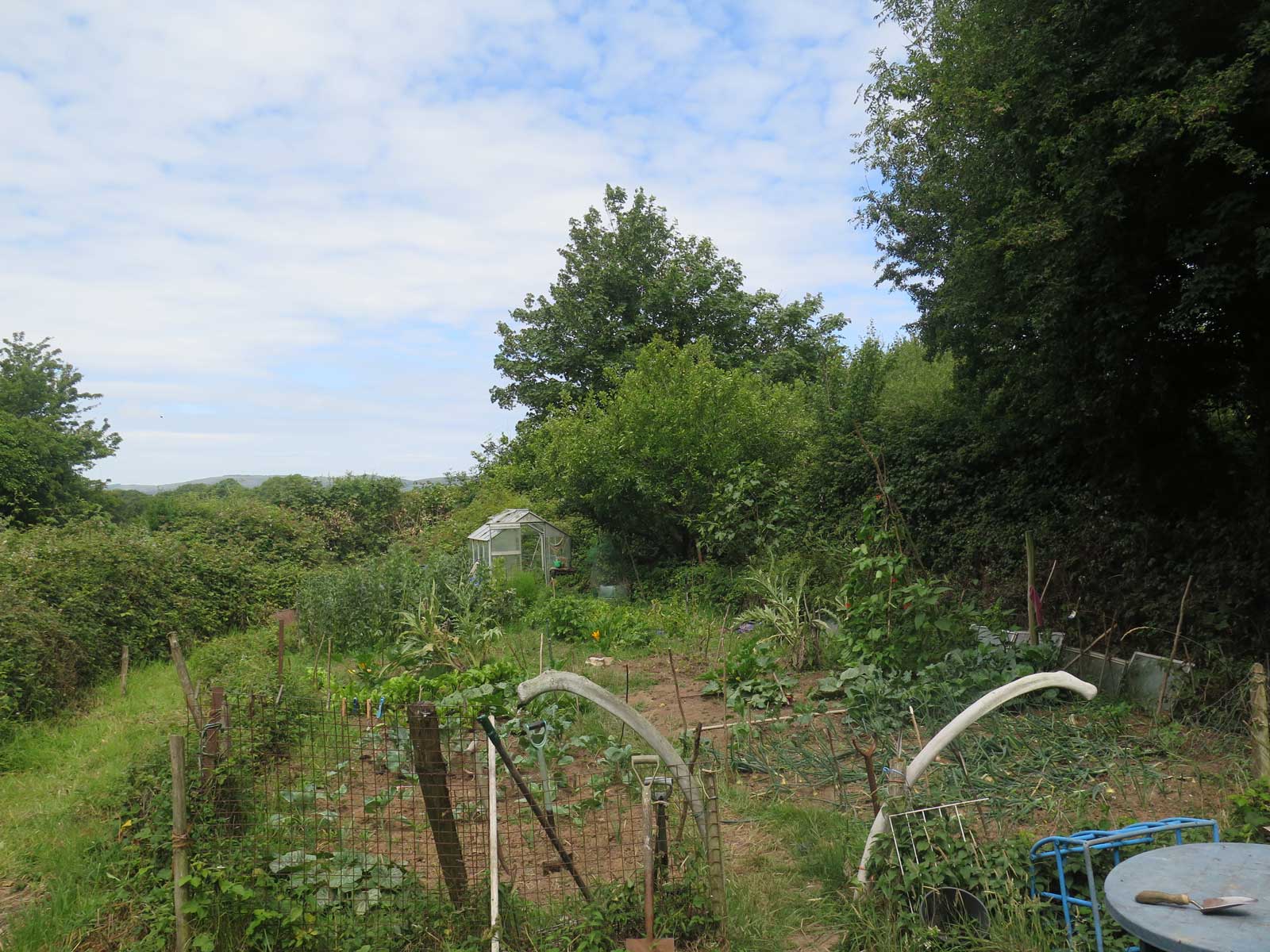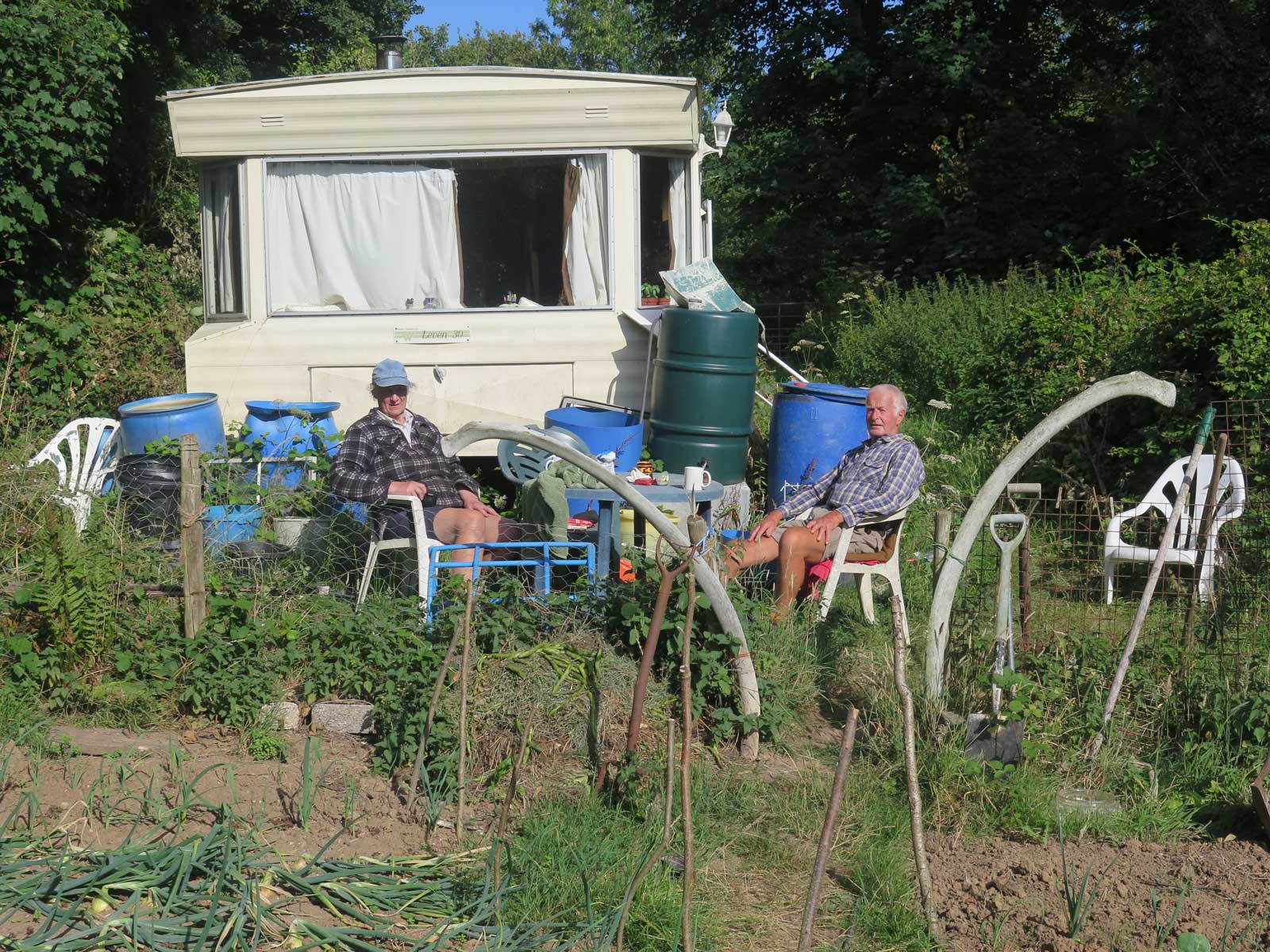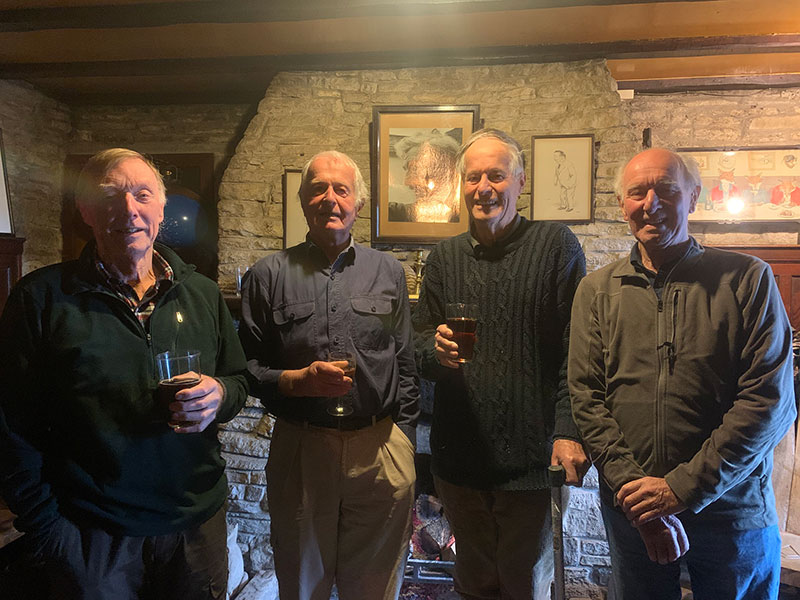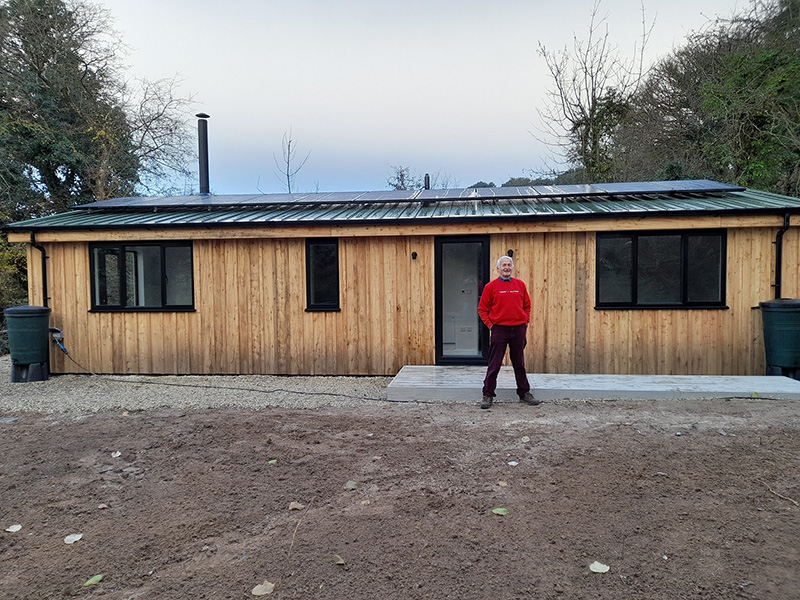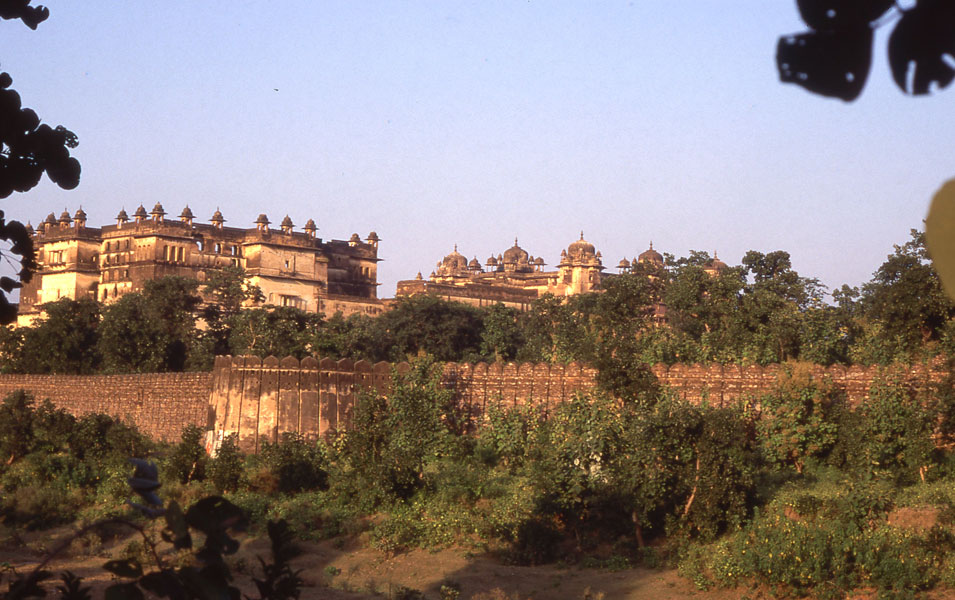14. Back Home In Purbeck 2020
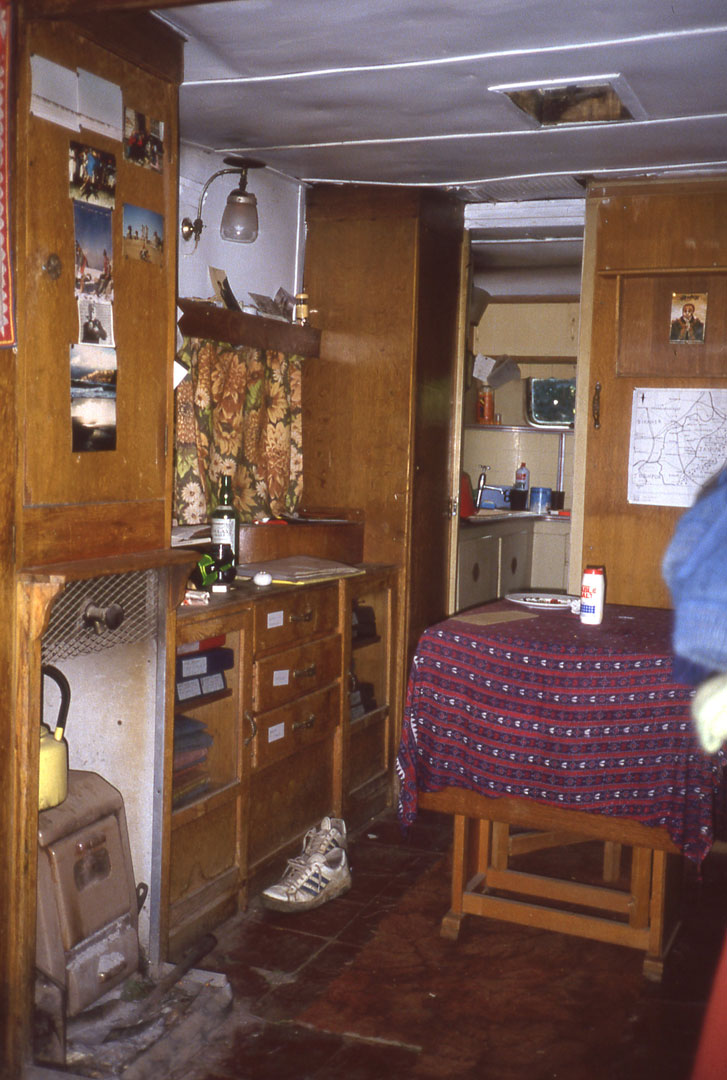
13. Trailer Trash
July 23, 2020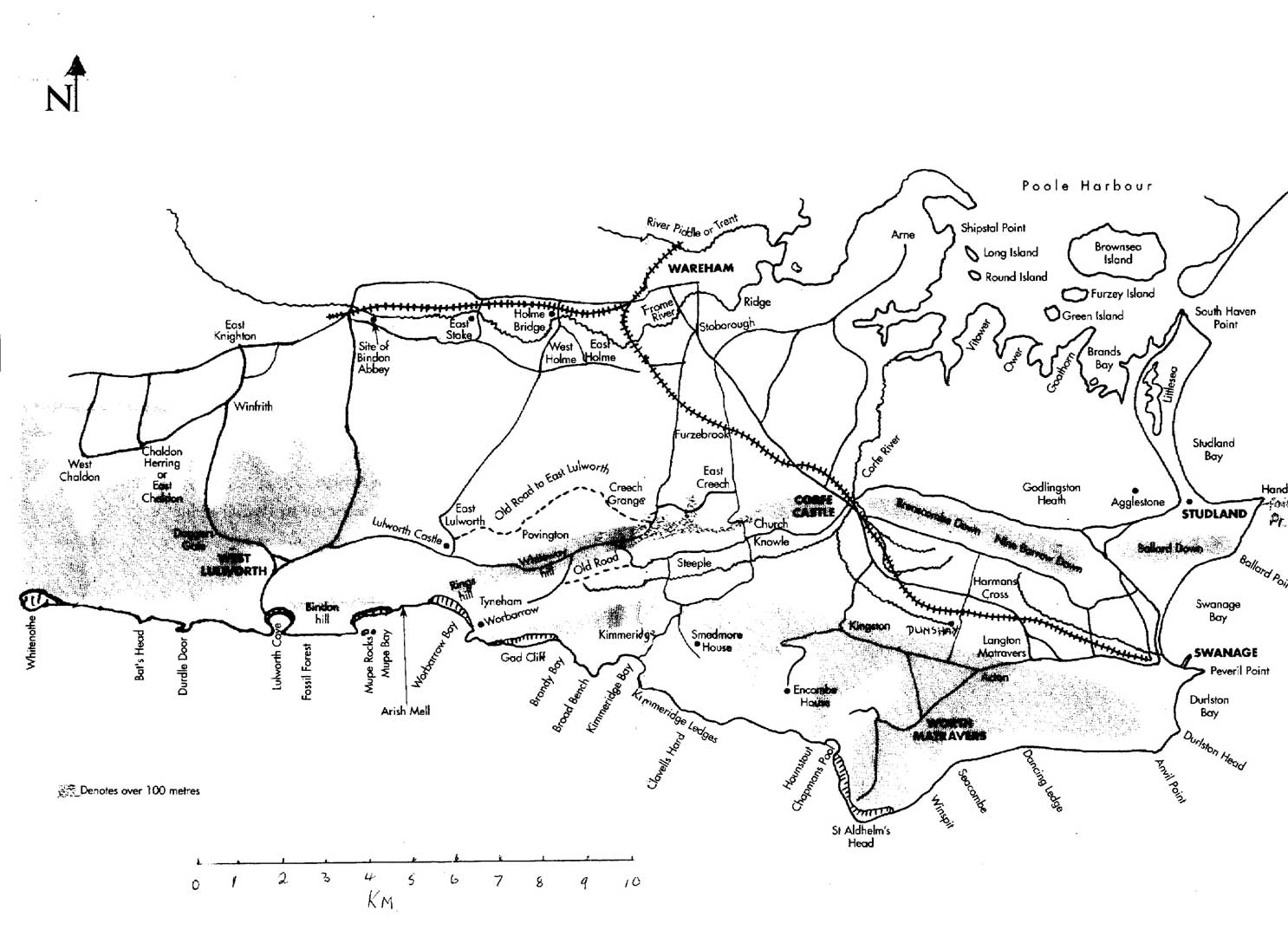
15. Tanglin Cottage
August 6, 2020T here's a present, a future shrinking each year and an ever-opening past. I started writing this blog in March, waiting for a coach in a deserted Heathrow airport. It's almost August and the Plague still passes through. In cursing it, the world agrees on something. Not much international squabbling in the last few weeks, but still a good time to commit atrocities or slyly steal someone else's land.
For me, life has been unremittingly fortunate, despite still living in a battered caravan, fourth of a series, in this small patch of rough pasture. When I moved here, in 1988, horses or sheep grazed the meadow. Lambs would invade my sleep as they chased each other, bumping noisily beneath the van. As Mary aged the animals retreated into other fields: the last two sheep, outliving her, died peacefully. When the animals were moved, she suggested I plant vegetables then enjoyed the result. Aware that I loved this little plot as much as she loved her bigger one she left me in place when bequeathing her estate to the Landmark Trust.
My western border is a low dry-stone wall. Barbed wire fence surrounds the rest. I encouraged brambles to form a second barrier, concealing both wall and fence and providing a home for birds and beasts. Spring was perfect this year. Our perfection, unbroken sunshine, is so different from that of Churu where the temperature reaches fifty and the rains are mean. 'Hot' here is around thirty with never a terrible drought. Big butts, rarely empty, collect rainwater from the caravan roof.
Sometimes rabbits raid the vegetables but they run the gauntlet of killer stoats, the occasional fox. A badger noses around, but there isn't much worth his while. So far, the roe deer, vagrant hares stay beyond the frontier only trespassing, ravaging the broccoli, when I am abroad. It partially recovers. Nothing seems to like leeks, my favourite winter vegetable. Birds feed amongst the crops, some of them - bullfinches, goldfinches - glorifying the plot with their colours. At dusk, a noisy flock of jackdaws passes over eastwards to roost in the woods beyond. Look carefully; the flock is not a homogeneous whole but a patchwork of pairs.
A few creatures are intrusive. Slugs, hostile to every English gardener, hoover up pretty, green seedlings as they appear, leaving a silvery slime trail as evidence; with wireworms, they bore holes in potatoes, sometimes reducing them to honeycomb. Mice and voles create catacombs from which they sample root vegetables, demolish lines of fresh-planted seeds. The stoats don't kill enough of them to inspire a general retreat. Grey squirrels attack plums and pears, but neither tree yields much. They scorn the figs.
As the winter ends fresh seeds must be planted in the greenhouse for another year's crops. The local songbirds, mellifluous blackbirds, repetitive song thrushes, jingling robins and hedgesparrows decorate the morning. Migrants arrive from Africa to join the choir; two of them, chiffchaffs and blackcaps, increasingly neglect the migration and pass their winters in England. Global warming! The chiffchaff is first to sing, if a repetitive 'chiff-chaff-chi' can pass for music. One called as I unlocked the caravan, welcoming me home: March 11th – that was early. The willow warbler, so like a chiffchaff in looks but with a lovely descending scale, evaded me this spring as did the cuckoo. Of the garden's two best singers the blackcap has the edge on the blackbird. The bullfinch, for all its lovely pink and grey décor, offers only a plaintive 'peep'. Blue-sheened swallows twitter happily. Last come the dark, scythe-like swifts, unremitting fliers, screaming down streets, always airborne until breeding calls them down.
There are hives nearby, the bees impregnating fruit and vegetables, the irrestistable radiance of golden courgette blooms. Familiar butterflies flit through, loitering over flowers. Peacocks and yellow Brimstones appear first, then Red Admirals, Speckled Woods, ragged chestnut Commas (there's a clear white comma on the closed wing), Holly Blues, but mostly the ubiquitous Meadow Brown and its sidekicks, Gatekeepers and Ringlets. The once-common Tortoiseshell, having faced its own Plague, is rare now. Only the Whites pose a threat. Their caterpillars love the cabbage family, reducing leaves to a lacework of veins.
Of the vegetables, spinach, purple sprouting broccoli and leeks yield until spring, then bolt into flower. Onions remain stored from last year. There are uncultivated greens, too: stinging nettles, a nuisance to pick, are good to eat; wild garlic adds zest to salad. A new generation of spinach soon replaces the old. Then come the months of plenty. Delicious broad beans, planted last autumn, were ready in late May. Runner beans follow. Beetroot is ready now. I burden friends with the surplus.
It is hard to lock down anyone here. Dunshay, once a manor house and a farm (the two now separated by a few yards) is like the centre of a spider's web; footpaths run off in all directions. Apart from me, few use that network; it means living at a slower pace. I know the time for each route. Forty minutes to Corfe Castle, the baker, the clinic. Half an hour to Langton, the post office. An hour to Swanage, the supermarket, library, shops. 2 ½ hours to Wareham on Saturday for the market, a better choice of shops, the railway station to London and beyond. It is fifteen minutes uphill to the bus stop then an hour to Poole, the nearest big town.
As for amenities. I have a tap for drinking water, refill a gas cylinder every three months, saw wood in autumn to keep the wood-burning stove fed from October to April; a couple of kettles on top supply hot water. Damp can be a problem. My large collection of photographic slides develops faint purple patches from fungus.
A rough existence? Good fortune is to know no better way to live.

